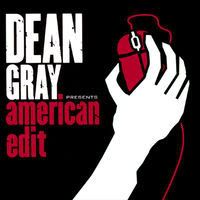QotW3: Every day's a Grey Day
What do content creators want? The answer might seem obvious: tougher copyright laws to protect their rights to their intellectual property. But is this really true? I’d like to argue otherwise.
Article I, Section 8, Clause 8 of the United States Constitution, known as the Copyright Clause (or the intellectual property clause) empowers the United States Congress "to promote the Progress of Science and useful Arts, by securing for limited Times to Authors and Inventors the exclusive Right to their respective Writings and Discoveries." (USConstitution.net).
It seems to me that the spirit of the Copyright Clause is to encourage creators to continue creating, and thus continue contributing to the public good, by making it possible for them to obtain due remuneration for their efforts. The Copyright Clause enables Congress to recognise "Writings and Discoveries" as their authors’ exclusive property. This goes beyond simple financial compensation. It accords inventors and innovators due credit for their ideas - as long as those ideas are set in some tangible form.
Madison and Jefferson's correspondence regarding the Copyright Clause (which can be read here) shows that it was not intended as a way for creators to establish intellectual property boundaries indefinitely. The ultimate aim of the Clause was to stimulate further innovation for the good of the public. Copyright as an incentive was the means to that end. However, many corporations nowadays see copyright as an ideological fence to erect around their "property". We have become used to the idea of intellectual property - so used to it, in fact, that we treat it as akin to physical property. The flaw in this view of things is that if you obtain some physical property, someone somewhere loses it. It’s different with intellectual property. Jefferson best expresses it when he says "he who lights his taper at mine, receives light without darkening me." (Phillips, 1999). You can give away intellectual property without losing any of it yourself.
funny interlude
In the aforementioned example regarding American Edit, we can see that no one except Green Day's record label seemed to mind that Dean Gray was distributing edited Green Day music. Why? The record label had no vested interest apart from financial gains. Green Day could have felt that their music was being bastardised, but they didn't. Netizens rallied in an online protest similar to Downhill Battle's Grey Tuesday in 2004. There is in fact a strong and thriving internet subculture that promotes the use of creative commons, and is fighting for the free sharing of information and fluidity rather than divisiveness when dealing with intellectual property rights. I'd like to call for us to follow the spirit of the law rather than the letter of the law. Online piracy has found a multitude of ways to sidestep the law. Take Piratebay for example. It's time for us to make more productive use of the incredible information-sharing capabilities of the internet, with regards to creativity, instead of limiting ourselves to furtive trading of copyrighted files.
Sites such as Wikipedia and Ask Metafilter show us what's possible when we build on each other's ideas. The hive mind is bursting with untapped potential. If an ad hoc online community can build a collection of information that rivals the Encyclopaedia Britannica, imagine how we can expand upon the vast range of music, literature, ideas and products that are floating through cyberspace. The Copyright Clause encouraged innovators to create by promising to protect their rights to their ideas. How about encouraging the general public to improve on those first ideas? The ability of the internet to disseminate information quicker than ever before makes it possible for people to share, discuss, and feed off each other's creativity.
References:
Martin, R. (2006, May 23). Remix culture: a rights nightmare. ABC Online - Catapult - Indepth. Retrieved February 3, 2007 from http://www.abc.net.au/catapult/indepth/s1645533.htm
| When Dean Gray (Party Ben and team9) created American Edit, a mashup of Green Day’s album American Idiot, and posted it for free online, they received a "cease and desist" notice from Green Day’s record label. In the ensuing controversy, Green Day announced publicly that they were flattered by the remix and liked it. More than 400,000 people signed an online petition against the record label’s attempt to suppress distribution of the album (Martin 2006). The bulk of objections against the remixing and redistribution of Green Day’s music came, ironically, not from Green Day themselves, but from their record label. |  listen to the mashup |
Article I, Section 8, Clause 8 of the United States Constitution, known as the Copyright Clause (or the intellectual property clause) empowers the United States Congress "to promote the Progress of Science and useful Arts, by securing for limited Times to Authors and Inventors the exclusive Right to their respective Writings and Discoveries." (USConstitution.net).
It seems to me that the spirit of the Copyright Clause is to encourage creators to continue creating, and thus continue contributing to the public good, by making it possible for them to obtain due remuneration for their efforts. The Copyright Clause enables Congress to recognise "Writings and Discoveries" as their authors’ exclusive property. This goes beyond simple financial compensation. It accords inventors and innovators due credit for their ideas - as long as those ideas are set in some tangible form.
Madison and Jefferson's correspondence regarding the Copyright Clause (which can be read here) shows that it was not intended as a way for creators to establish intellectual property boundaries indefinitely. The ultimate aim of the Clause was to stimulate further innovation for the good of the public. Copyright as an incentive was the means to that end. However, many corporations nowadays see copyright as an ideological fence to erect around their "property". We have become used to the idea of intellectual property - so used to it, in fact, that we treat it as akin to physical property. The flaw in this view of things is that if you obtain some physical property, someone somewhere loses it. It’s different with intellectual property. Jefferson best expresses it when he says "he who lights his taper at mine, receives light without darkening me." (Phillips, 1999). You can give away intellectual property without losing any of it yourself.
funny interlude
In the aforementioned example regarding American Edit, we can see that no one except Green Day's record label seemed to mind that Dean Gray was distributing edited Green Day music. Why? The record label had no vested interest apart from financial gains. Green Day could have felt that their music was being bastardised, but they didn't. Netizens rallied in an online protest similar to Downhill Battle's Grey Tuesday in 2004. There is in fact a strong and thriving internet subculture that promotes the use of creative commons, and is fighting for the free sharing of information and fluidity rather than divisiveness when dealing with intellectual property rights. I'd like to call for us to follow the spirit of the law rather than the letter of the law. Online piracy has found a multitude of ways to sidestep the law. Take Piratebay for example. It's time for us to make more productive use of the incredible information-sharing capabilities of the internet, with regards to creativity, instead of limiting ourselves to furtive trading of copyrighted files.
Sites such as Wikipedia and Ask Metafilter show us what's possible when we build on each other's ideas. The hive mind is bursting with untapped potential. If an ad hoc online community can build a collection of information that rivals the Encyclopaedia Britannica, imagine how we can expand upon the vast range of music, literature, ideas and products that are floating through cyberspace. The Copyright Clause encouraged innovators to create by promising to protect their rights to their ideas. How about encouraging the general public to improve on those first ideas? The ability of the internet to disseminate information quicker than ever before makes it possible for people to share, discuss, and feed off each other's creativity.
References:
Martin, R. (2006, May 23). Remix culture: a rights nightmare. ABC Online - Catapult - Indepth. Retrieved February 3, 2007 from http://www.abc.net.au/catapult/indepth/s1645533.htm
| The United States Constitution. Retrieved February 3, 2006, from http://www.usconstitution.net/const.html Phillips, Timothy (1999, February 9). Thomas Jefferson's copyright term. Mailing List CNI-Copyright. Retrieved February 3, 2006, from https://mail2.cni.org/Lists/CNI-COPYRIGHT/Message/2113800.html |  |

1 Comments:
At 11:42 PM, Kevin said…
Kevin said…
Good job talking about how corporations have distorted the original intention of copyright act. Also good that you cited examples of Wikipedia as how people can build upon each other's ideas.
Post a Comment
<< Home